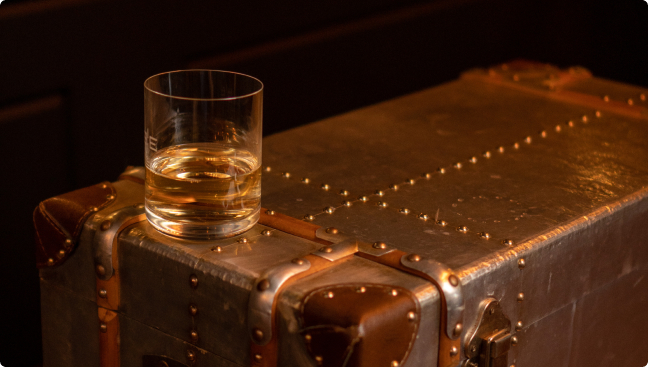Bourbon: The American Essence in the History of a Distinguished Spirit
Bourbon is more than just a distilled beverage; it is an iconic symbol of American culture and a rich tradition that dates back centuries. With its roots deeply tied to United States history, this uniquely flavored spirit has won admirers around the world. In this article, we will explore the fascinating history of bourbon, from its humble origins to its recognition as one of the most appreciated and distinguished distilled spirits in the world.
The Origins of Bourbon
The exact origins of bourbon are often disputed, but it is believed that the drink originated in the region now known as Kentucky, United States, in the late 18th century. The colonization of America brought with it the tradition of distillation, and early Scottish and Irish settlers brought their knowledge of whisky production. Kentucky’s geographical location is fundamental to bourbon’s history. The region has a favorable climate for growing grains such as corn, which would become the essential ingredient in bourbon production. The combination of pure water from natural springs and mineral-rich soil created the ideal environment for aging in oak barrels, giving bourbon its distinctive flavor.
The Legend of Evan Williams
One of the most famous legends related to bourbon is the story of Evan Williams, a Welsh merchant and distiller who settled in Kentucky in the late 18th century. Evan Williams is often considered one of the pioneers of bourbon production in the region. The story goes that Williams established himself along the Ohio River and began distilling corn whiskey, using oak barrels to age the spirit. His product quickly gained fame and reputation for its high quality and unique flavor. Although the story of Evan Williams is more legend than verified fact, it illustrates Kentucky’s historical importance in bourbon production.
The Name “Bourbon” and the 1964 Whiskey Act
The origin of the name “bourbon” is also a subject of controversy. A popular theory is that the name was given in honor of Bourbon County, Kentucky, where the drink was allegedly first produced. Another theory suggests the name came from Bourbon Street in New Orleans, where the whiskey was marketed. Regardless of its exact origin, the name “bourbon” eventually became synonymous with high-quality American whiskey. In 1964, the United States Congress declared bourbon a “distinctive product of the United States,” establishing specific standards for its production and aging. This law, known as the 1964 Whiskey Act, helped define and protect bourbon’s identity as a true American tradition.
The Growing Popularity of Bourbon
Throughout the 19th and 20th centuries, bourbon gained popularity both in the United States and abroad. Distilleries in Kentucky continued refining their production techniques, and new bourbon brands and styles emerged. The bourbon boom in recent decades has been phenomenal. The appreciation for artisanal products and cocktail culture has further boosted demand for this distinctive spirit. Famous and award-winning distilleries have attracted the attention of connoisseurs worldwide, elevating bourbon’s status to an even higher level.
Conclusion: A Toast to Bourbon’s Long History
Bourbon is more than just a drink; it is a narrative of American history. From its humble origins on the Kentucky frontier to its recognition as one of the world’s most cherished distilled spirits, bourbon has stood the test of time and won the hearts of countless enthusiasts. Let us toast to bourbon and the tradition it represents: careful distillation, aging in oak barrels, distinctive flavor, and an innovative spirit that continues to evolve. May this rich and captivating story of bourbon inspire new generations to appreciate and value this true American essence. Cheers!
